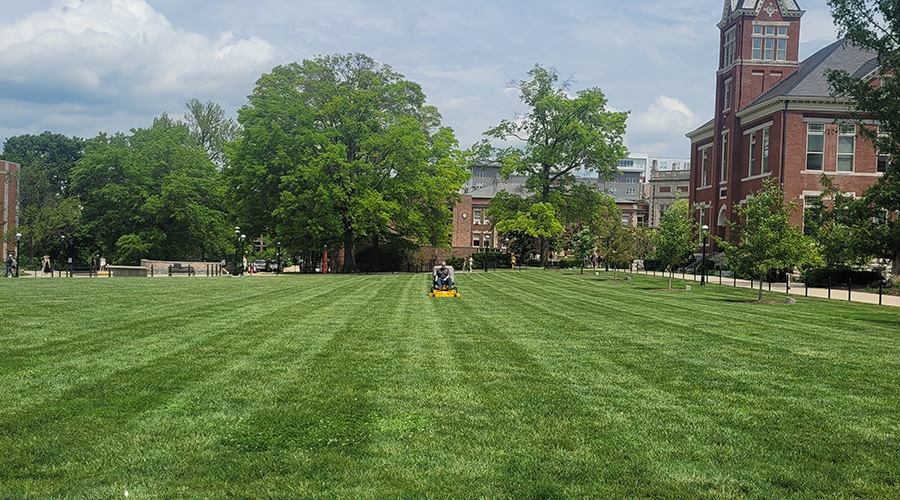Undetected Irrigation Issues Result In Significant Water Waste
Because irrigation often occurs during off-peak hours, many problems with irrigation systems go undetected for long periods and can result in significant water waste. This monthly system check ensures rain sensors are functioning properly, all moisture sensors are programmed correctly, and all filters have been inspected and cleaned and are free of sediment.
Weekly visual checks also are essential to pinpointing and fixing issues as quickly as possible. When inspectors check systems only monthly, these issues have longer to develop, and problems such as small leaks can turn into much larger problems. Inspectors can identify small leaks by reducing pressure at system heads when the system is on or determining if there is excess water somewhere else in the system.
Besides low-pressure issues, high or fluctuating water levels also can cause problems that, in turn, cause heads to mist or fog. In such cases, water does not get to a lawn or planting bed at the optimal rate. Though relatively minor at first, these issues can cause significant damage to the property until repaired.
Maintenance matters
Failure to properly maintain individual pieces of an irrigation system can have a host of unpleasant consequences. The system uses excess amounts of water, increasing operational costs. Water-pressure issues might result in pooled water or soggy patches of lawn or a difference in sprinkler-spray patterns. Uneven sprays within a particular zone are another sign of pressure problems that could be the result of a leak in a valve or pipe.
A lack of maintenance also can result in much larger leaks or broken pipes, which can cause drastic problems. The best way to avoid such catastrophic damages is to maintain a strict maintenance schedule.
The most common maintenance issues occur due to loose connections between the pipe threads and the valves. This situation can cause a loss of the watertight seal and lead to leaks. Nozzle issues also can lead to problems such as brown lawns or areas that are inconsistently colored or regularly muddy and wet. These problems are some of the most frequently occurring, as well as some of the easiest to spot. But if left unattended, they can be quite costly to repair, leading to vegetative issues such as root rot and fungal diseases. These problems can happen for other reasons as well, including clogged or misaligned sprinkler heads or broken nozzles.
Damage from lawn mowers, normal wear, and improperly installed sprinkler heads can lead to broken or misaligned nozzle heads, which can cause spray disruption, resulting in uneven water coverage and higher volumes of water waste. Managers also must remember that over time, soil, grass clippings and other types of debris can build up around the heads and disrupt spray patterns.
Sprinkler heads also can sink over time due to settling, and heavy service vehicles and pedestrian traffic can push down the soil surrounding the heads. Ensuring that all nozzle heads pop up completely, then fully retract when the water is turned off, will help with delivering uniform water coverage. Workers also can regularly check for sprinklers blocked by grass, plants or other obstacles.
When necessary, they also can clean or replace clogged heads and ensure sure all heads direct water to landscaped areas, not to impervious surfaces, such as pavement. They can also make sure sprinklers are vertical and flush with the soil grade, and they can check for steady water pressure. Constant vigilance is the best way to determine whether the irrigation has ongoing problems with water pressure. In such cases, an irrigation specialist can provide valuable assistance.
Related Topics:














